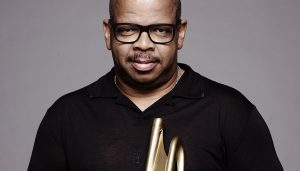
By K.P. Williams
(NNPA) Pop, Rock, Jazz, and Classical. These are all separate genres of music. But what happens when you put two of them together? You get “opera in jazz” rather than “jazz opera,” according to jazz musician and opera composer Terence Blanchard, who is the former Thelonious Monk Institute of Jazz Performance Artistic Director. Blanchard is also a jazz trumpeter from New Orleans who has over 20 albums to his credit, won three Grammy’s and written music for many of Spike Lee’s films. Blanchard just premiered his first opera, (the opera’s second production run), “Champion,” the story of former Welterweight Boxing Champion Emile Griffith and his life-defining fight with reigning Welterweight Champion Benny “The Kid” Paret.
In March 1962, Griffith and Paret went toe to toe in a fight that ended with Paret in a coma for ten days, then dying from injuries he sustained during the fight. In “Champion,” we get inside the mind of a tortured man reliving the fight that forever changed his career, along with his public battle of being a bisexual man of color in the 60’s. Being a big fan of boxing and hearing about the nature of Griffith and his story, compelled Blanchard to choose “Champion” as his first opera. The line, “I kill a man and most forgive me, I love a man and many say this makes me an evil person,” famously said by Griffith in the book, “A Man’s World: The Double Life of Emile Griffith” by Donald McRae, is one of the lines that drew Blanchard to his story.
“Having a boxer or an athlete who has the same struggle as many others throughout different walks of life could bring a compelling concern and light on an issue that many other people still struggle with today,” said Blanchard.
Telling this ambitious story of humanity, tragedy and redemption, through voice and music was new for Blanchard. Even though he’s been a jazz musician for over thirty-six years, working with vocals is a new undertaking. Blanchard said he doesn’t feel like he’s made the transition from jazz musician to opera composer yet, but he’s been learning a lot from talented and experienced people in that world. However, Blanchard said the most rewarding part in getting to compose this “opera in jazz” was going from the opera in his mind for two years, to “actually watching it come to life with the actors and the cast.”
Blanchard said that he wants audiences to understand Griffith was a human being just like any other human being and we have the same issues then as we do now. Blanchard is already working on his next opera based off the memoirs of New York Times writer, Charles M. Blow, entitled, “Fire Shut Up in My Bones.” Blanchard is sure to weather the waters of opera just like he has jazz.




